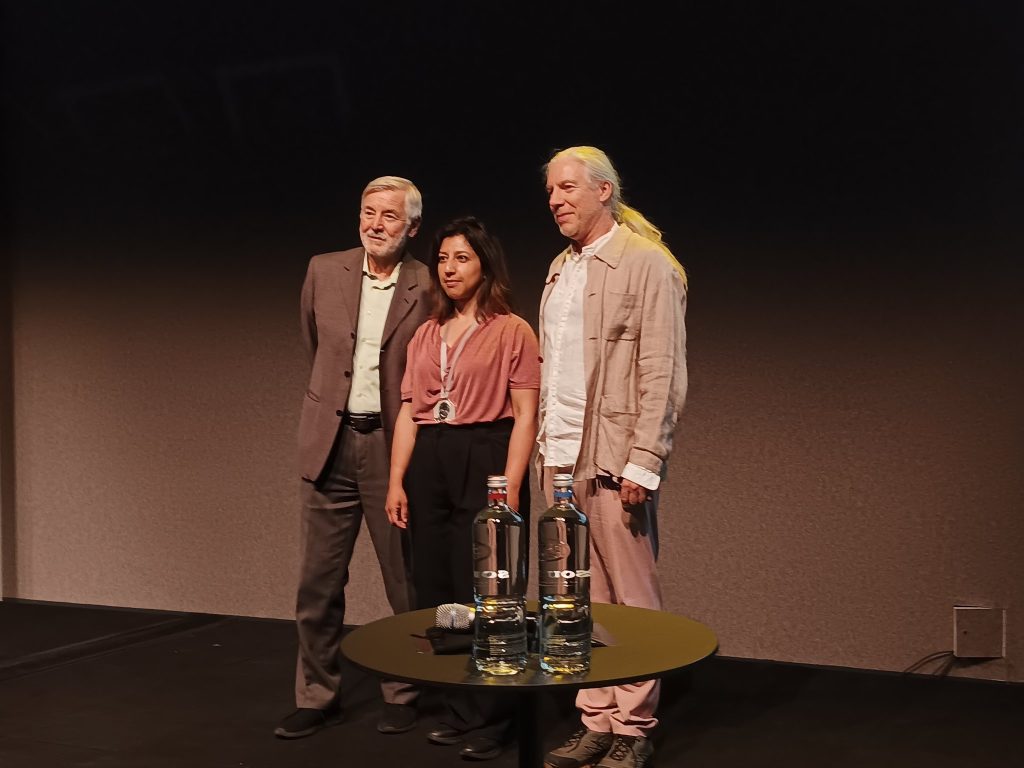St Hugh’s Tutorial Fellow receives prestigious Jeffrey L. Elman Prize

St Hugh’s Tutorial Fellow in Experimental Psychology, Professor Asifa Majid, received the prestigious Jeffrey L. Elman Prize for Scientific Achievement and Community Building at the Cognitive Science Society annual meeting.
The Jeffrey L. Elman Prize for Scientific Achievement and Community Building includes a hand-crafted custom silver medal, a citation of the awardee’s contributions, and a monetary award of $25,000. It is given to a mid-career cognitive scientist who has demonstrated scientific excellence and a commitment to community-building and service.
An alum of the University of Glasgow and University of Edinburgh in Scotland, Asifa spent 17 years in the Netherlands, first at the Max Planck Institute for Psycholinguistics and then at Radboud University, before returning to the UK. She serves on various international reviewing and editorial boards (including the Board of Reviewing Editors for Science) and has been awarded various prizes for her work which straddles the boundaries of psychology, linguistics, and anthropology.
Below is a copy of the citation from the CogSci website:
Scientific Achievements
Asifa Majid has carved out a distinctive intellectual niche in Cognitive Science. Two major themes are apparent in her work: the study of typological variation in semantic structure across languages, and interactions between language and cognition. For both of these, Asifa tackles questions with wide theoretical import. Her research has challenged conventional wisdom and provided important, novel insights into the systematic relations among culture, perceptual acuities, and linguistic classification. Asifa and her colleagues have explored issues across a wide set of domains, including spatial cognition, event segmentation, color categorization, pitch perception, and taste and smell. She has probed semantics in infants, the development of categories during childhood, and cross-cultural variability or stability, employing many experimental and exploratory techniques, including primary fieldwork in multiple societies and Indigenous languages. Her strikingly original work on the linguistic coding of odor categories has been highly influential, demonstrating that the ability to express thoughts about odor is a cultural phenomenon. Asifa also was the instigator and lead author on a 2018 PNAS article demonstrating differential linguistic coding across all of the major perceptual fields in 20 spoken and sign languages. These diverse avenues have influenced a wide range of academic researchers, as well as industrial research labs. As a result of her innovative, influential research, Asifa was awarded the KNAW Award for fundamental research from the Royal Netherlands Academy of Arts and Sciences and the Ammodo Foundation (2015), lauding her for “building totally new bridges between very diverse fields.” Finally, Asifa is a Fellow of the Cognitive Science Society, the Association for Psychological Science, and Academia Europaea, Linguistics section.
Community Building
Asifa Majid’s community building activities are numerous, multi-faceted, and inspiring. Asifa has played a major role in the Cognitive Science Society, as a member of the Governing Board (2016-2022) and Chair (2019-2020). Asifa’s accomplishments in these roles are truly exceptional. Through strategic recruitment, she worked to have the CSS better represent the membership and larger scientific community, both culturally and geographically. As Chair of the Diversity and Inclusion Committee, Asifa’s passion for equity and inclusivity led to several major accomplishments. The committee added prizes for students from underrepresented racial/ethnic groups and economically disadvantaged countries, prizes for research on diversity and social inequality, and awards for disciplinary diversity. Asifa also led initiatives to create hardship waivers and family care grants. Finally, she was instrumental in establishing the CogSci Grove in the Scottish Highlands as a means to mobilize academics to offset the carbon emissions associated with the annual conference. Asifa’s community building extends well past the CSS, however. She is involved in multiple community efforts to promote Indigenous languages. As one example, Asifa is on the Scientific Committee for a newly established field station in Peru that collaborates with local organizations to promote research and revitalisation of Peruvian Amazonian Indigenous languages. Asifa worked with the Dutch Knowledge Hub (WKRU) and teachers from three local schools to translate findings from her lab’s research into a classroom curriculum that introduces children to cross-cultural language variation and sensory perception. This resulted in book chapters that are used by classroom teachers in the Netherlands and France. Asifa has collaborated with artists to explore new ways of bringing cognitive science to the public, including at the Cooper Hewitt, Smithsonian Design Museum in New York, and The Art Workers Guild in London. She also is a Scientific Advisor for a new museum Biotopia: Museum of Life in Munich, exploring the relationships between humans and other living species. Asifa also is one of the founding editors of the Open Encyclopedia of Cognitive science, which provides accessible and scholarly articles about cognitive science free for the community, with the goal of making it available in multiple languages. Finally, Asifa is particularly invested in supporting earlier career researchers, especially those from under-represented or non-traditional backgrounds. As part of this, Asifa mentored junior female scientists within the Max Planck Society, and she mentors women returning to academia after a family caring break in their careers.
